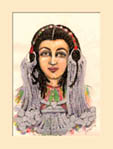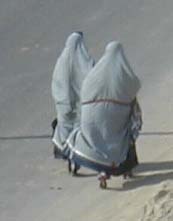 |
Culture.

|

|
 |
SIWA CULTURE
Fasting
Ramadan is the fasting month in Islam, when
every Muslim who is able to goes without food or drink from
sunrise until sunset. At maghreb, or sunset, families gather
around a platter of dates, rayeb (fermented milk), yoghurt or
kishk (crushed dry bread mixed with water). At the first sound
of the call to prayer, everyone gives thanks and breaks their
fast with a few dates and a drink. After the maghreb prayer,
families gather again for “iftar”, or dinner. Muslims all
over the world enjoy sumptuous meals at iftar, and Siwa is no
different. The oasis full of tourists at this time, who are
drawn by the peace and unity of Muslims observing the fast.
In Siwa, children begin to fast for a few
hours and then for a few days during Ramadan in order to learn
how to fast. They are expected to fast the entire month for
the first time when they are 12 years old.
Boys usually have a party to celebrate their
first fast. His aunts, cousins and grandmothers bring gifts,
praying for Mohammed as they enter the house. More traditional
households cook duck, macarona, boiled eggs, and roqaq, a kind
of large crepe. The duck, wrapped in roqaq, is given to one of
the women present. She then carves the duck, wrapping slices
of meat and boiled egg in roqaq. This dish is called
ashengood, and is served after the macarona. These days, the
boy’s mother may simply invite the young male cousins over
for macarona and chicken. At the end of the evening, a
basketful of biscuits, sweets and money are tossed, and
everyone scrambles to catch them. Tea and more sweets are
served.
On the morning of Eid el Fitr, the feast that
marks the end of Ramadan, boys who fasted for the first time
will hand out silver coins to children at the door of the
mosque.
Leylat al Qadr, or “Night of Power,” is
the night on which the Qur’an was sent down, and so it has
special significance. This single evening, according to Sura
al Qadr, is “better than a thousand months” and observant
Muslims will spend some or all of the night in prayer.
However, no one knows exactly when it is, although it is
sought on the odd-numbered evenings during the last week of
Ramadan. In Siwa, the 27th of Ramadan is honored as
“Qadry,” or Leylat al Qadr. Families share a whole duck or
chicken for iftar, and after isha prayers the darwish (sufi
holy men) chant dhikr, or remembrances, to Allah.
|
 |